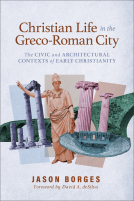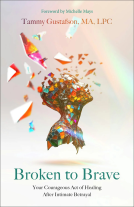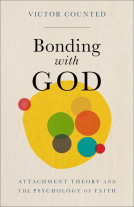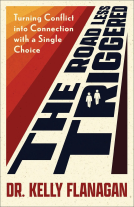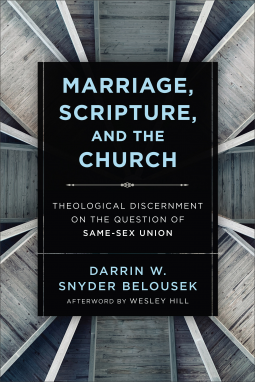
Marriage, Scripture, and the Church
Theological Discernment on the Question of Same-Sex Union
by Darrin W. Snyder Belousek
This title was previously available on NetGalley and is now archived.
Send NetGalley books directly to your Kindle or Kindle app
1
To read on a Kindle or Kindle app, please add kindle@netgalley.com as an approved email address to receive files in your Amazon account. Click here for step-by-step instructions.
2
Also find your Kindle email address within your Amazon account, and enter it here.
Pub Date 16 Mar 2021 | Archive Date 16 May 2021
Baker Academic & Brazos Press | Baker Academic
Talking about this book? Use #MarriageScriptureandtheChurch #NetGalley. More hashtag tips!
Description
Advance Praise
“I have been waiting for this book! Finally, a book about same-sex sexuality that refuses to rehearse the tired discussion about the prohibition passages and instead reorients our focus where it should have been all along—on the meaning of marriage. What is marriage for? What is sex for? What exactly is marriage? Darrin Snyder Belousek has written a theologically robust, exegetically responsible, and pastorally compassionate tour de force on one of the most important topics facing Christians today. Anyone who wants to engage this topic must read this book.”—Preston Sprinkle, president of the Center for Faith, Sexuality & Gender
“I was immediately prejudiced in favor of this book because it starts in such a wise and illuminating place. It starts with the nature of marriage itself as the Scriptures see it and as theologians and the church’s teaching have seen it. And it stays with that framework all the way through. This starting point opens up questions about topics other than same-sex marriage, topics such as the integral place of children in marriage and the possibility of divorce. The book is also worryingly up-to-date on where Christian thinking about sex in general is going. If your heart sinks at the thought of yet another discussion of same-sex relationships, make an exception for this one.”—John Goldingay, David Allan Hubbard Professor Emeritus of Old Testament, Fuller Theological Seminary
“With exegetical precision, theological acumen, and historical depth, Snyder Belousek makes a compelling case that the nature of marriage is really the key issue in same-sex-union debates. He demonstrates that conviction, civility, and compassion can be held together. This is a highly significant work, and I heartily recommend it.”—Dennis P. Hollinger, president emeritus and senior distinguished professor of Christian ethics, Gordon-Conwell Theological Seminary
“This extraordinary book offers a comprehensive engagement with the current arguments favoring same-sex marriage from a Christian perspective. Snyder Belousek’s tone is balanced and charitable, and his judgments are well reasoned and persuasive. Ultimately, its greatest contribution may consist in recentering the eschatological marriage of God and creation in Christian theology and pastoral practice, thereby teaching all of us, of whatever sexual orientation or state of life, to conceive our vocations in a fresh and striking light. This is the one book on this topic that everyone should read.”—Matthew Levering, James N. and Mary D. Perry Jr. Chair of Theology, Mundelein Seminary
“Darrin Snyder Belousek deals with the question of same-sex union in a way that is not only judicious and fair but also generous and kind. His careful and thorough review of both Scripture and church tradition emphasizes the importance of understanding this issue within the context of a robust Christian theology of marriage. By placing the question of same-sex union within the larger context of a theology of marriage, Snyder Belousek reminds us that marriage and sex are not primarily for our own pleasure or purposes but were designed by God to orient our lives toward him and toward his great work of salvation. Ultimately, this book reminds all of us, no matter our sexual orientation, that we do not belong to ourselves; we belong to God.”—Christina S. Hitchcock, University of Sioux Falls; author of The Significance of Singleness
“Marriage, Scripture, and the Church is a significant step away from lobbing Bible verses at the opposition like grenades, where, after the dust settles, all that seems left are damaged psyches and broken relationships. Darrin Snyder Belousek offers a rigorous treatment of Christian Scripture, theology, and history in an effort to discern, along with the larger church, what marriage can be and not just what type of sexual activity is allowed or forbidden. All people interested in Christian teaching regarding marriage will find Snyder Belousek’s analysis to be thoughtful and thorough, no matter what position they might hold regarding same-sex unions.”—Dennis R. Edwards, associate professor of New Testament, North Park Theological Seminary
“Marriage, Scripture, and the Church is a must-read book. Professor Darrin Snyder Belousek presents an irenic, wholistic, and refreshing reminder of marriage’s three facets—procreation, partnership, and prefiguring Christ and the church—and celibacy’s prefiguring of the resurrection age, which are not present in same-sex unions.”—Aída Besançon Spencer, senior professor of New Testament, Gordon-Conwell Theological Seminary; coeditor of Marriage at the Crossroads and Christian Egalitarian Leadership
“Would you like a well-written, carefully researched study of marriage in the Christian tradition, intended as the basis for contemporary discussions about sexual practices and longings? Snyder Belousek’s irenic study engages the reader from the start, without making heterosexual monogamy an idol and without denigrating those who struggle with the cogency of his presentation.”—J. Andrew Dearman, professor of Old Testament, Fuller Theological Seminary
“The account of biblical marriage advanced in this volume is remarkable. Snyder Belousek maintains fidelity toward Scripture while highlighting the need to frame our doctrines in ways that address all manner of contemporary challenges. In particular, he is equally honest about challenges that exist within traditionalist faith communities as he is about the challenge of doctrinal innovations that do not remain faithful to Scripture. For example, Snyder Belousek is intentional about framing his account of biblical marriage in ways that are compelling to sexual minorities who adhere to a traditionalist perspective on marriage. For some of these individuals it is not always clear that the historic Christian account of marriage is truly good for all people. Snyder Belousek takes this challenge seriously, and with abundant care he outlines a theology of marriage that is both biblically faithful and pastorally sensitive for all believers, whether gay or straight. I look forward to adding this volume to my short list of recommended resources on the topic of biblical marriage.”—Nate Collins, president and founder of Revoice
“Those of us who write and teach about sexuality are well aware that there is a dearth of books offering a solid theological rationale for marriage. This is particularly true if what we are wanting is a current, well-written, thoroughly researched book, deeply rooted in scriptural teaching and the riches of the Christian tradition. And it is almost too much to hope for that this traditional view will be infused with the gospel, with the compassion, of Jesus Christ. Yet this is precisely what Snyder Belousek offers us in this wonderful book on marriage.”—Mark Thiessen Nation, Eastern Mennonite Seminary
“Like no other book, Marriage, Scripture, and the Church brilliantly frames our current disagreements on sexuality in terms of the doctrine of marriage. It carefully guides the reader through Scripture, church history, doctrine, and current arguments to highlight the different rationales for changing our doctrine and the consequences of doing so. It offers a positive vision and model of how the church might discern God’s truth.”—Andrew Goddard, tutor in Christian ethics, Ridley Hall, Cambridge, and Westminster Theological Centre
“In the wide mix of books and articles on these interrelated topics, Marriage, Scripture, and the Church will make a much-needed contribution. Scholars from every position will need to take Darrin’s work into consideration. I highly recommend it.”—Willard Swartley†, Anabaptist Mennonite Biblical Seminary
Available Editions
| EDITION | Other Format |
| ISBN | 9781540961839 |
| PRICE | $32.00 (USD) |
| PAGES | 352 |
Average rating from 3 members
Featured Reviews
Darrin’s “Marriage, Scripture, and the Church” is an informative and challenging book on the same-sex union debate through the focus on the biblical theology of marriage. Every pastor and church leader should read this book!
There is probably no bigger or more contentious discussion in the church today than issues surrounding same-sex sexual behavior and same-sex marriage. This is more than a theological issue. For many, it’s a matter of identity, of validation, and of civil rights. This isn’t just an academic discussion. That’s part of what makes reviews like this so difficult to write. Marriage, Scripture, and the Church: Theological Discernment on the Question of Same-Sex Union is unabashedly academic. Darrin Belousek delivers a thorough, comprehensive, and cautious review of Scripture and church tradition, meticulously working his way through the arguments, counter-arguments, objections, and rebuttals in an effort to bring clarity of complexity to an issue often thought to be both muddy and settled.
By clarity of complexity, I mean that Belousek doesn’t hide from good arguments, acknowledges when points are strong or weak, and is even-handed in his approach. Though I had a well-reasoned guess as to his ultimate conclusions, it honestly wasn’t until three-quarters through the book that I had a firm grasp on Belousek’s personal conclusions of his evaluation. That, to me, is the highlight of Marriage, Scripture, and the Church. While Belousek writes toward a conclusion, he writes without an agenda. Even though he maintains a traditional (non-affirming) view, he gives due diligence to affirming perspectives and arguments.
The first part of the book serves as an introduction of sorts, where Belousek frames the discussion and outlines his approach and presuppositions. For Belousek, the first matter is marriage: the question that he is seeking an answer for is whether or not the church should sanction same-sex unions. The presupposition is that all sex is meant to be within a unitive, mutual, exclusive, enduring marriage relationship.
The second part dives into the concept of marriage, discussing the role of marriage in Scripture and tradition, Jesus’s views on marriage, the patriarchal nature of Ancient Near Eastern culture, and more. Belousek’s purpose here is to laboriously ensure that, even if we do not agree with his starting point—that the only potential possible allowance for same-sex sexual activity is within marriage—we understand the position and have a good definition of all his starting points.
The third part is the meat of the book, which evaluates the case for what Belousek calls “marriage innovation.” With the review up to this point, Belousek is convinced—and writes a convincing argument—that the long-held, historical tradition of the church is that marriage is to be heterosexual. However, he acknowledges that tradition (what is normative) need not indicate what is exclusive. He points out times where church tradition was wrong—such as with its repudiation of a heliocentric solar system—and needed to change. He highlights that our modern, Western culture of marriage is completely foreign the marriage culture in the Ancient Near East.
Belousek also points to other areas in which the church—or segments of the church—has changed its minds. Using instances of the allowance of slavery and the prohibition of women in ministry, Belousek argues that some of what we see as biblical tradition was tradition, but tradition in need of change. Does same-sex union fall into this category? While Belousek may be a little overly optimistic about the change in regarding women in ministry, as many traditionalists in same-sex unions are also traditionalists in women in ministry, his overall exploration of the similarities and differences allow the reader to form their own conclusion, even if that ends up disagreeing with his own.
Among Belousek’s greatest points are his cautions toward traditionalist, whom he excoriates for the harm the position has done to sexual minorities by elevating sexual practice to the level of salvific orthodoxy. He writes that “Traditionalists should beware preaching a ‘heterosexual gospel’ that substitutes that misguided goal of orientation change for the good news of God’s grace.”
Marriage, Scripture, and the Church cogently and calmly outlines virtually every argument for and against same-sex marriage that I’ve ever heard, and even a few that I hadn’t. Belousek always comes to a conclusion, but the text is not written so as to guide the reader there. Instead, he presents the information, argues it dispassionately, and presents his conclusion even as he acknowledges the strengths of the opposite position. It was this tone, most of all, that kept me on the journey through the book. I read a digital advance copy on my phone and was convinced the book had to have been at least 700 pages. Google tells me it’s actually just over 300. I didn’t think this because the book was dry, but because Belousek was causing me to slow down and think critically and carefully about every issue.
Marriage, Scripture, and the Church is the most challenging and comprehensive work on same-sex union that I’ve ever read. There were areas that I agreed with Belousek’s conclusion and areas I didn’t. Sometimes, I held on to my disagreement but not as firmly. Other times, he came to a different conclusion, but I felt that the authors and texts he was working with made a better case and I found my disagreement strengthened. Some areas I agreed on, and other areas I found myself agreeing conclusively where I had previously only been moderately convinced. In that sense, Belousek’s work was a refreshing perspective that took time to absorb. Simply as a compendium of collated reference material, this book is a gem.
All of that said, I am not convinced that I agree with Belousek’s final conclusion in favor of the traditionalist (non-affirming) interpretation. But neither do I find myself wholeheartedly convinced of an innovative (affirming) interpretation. My personal conviction has been simply to allow the Spirit to work. To me, there is enough uncertainty to allow the issue to be between the individual and the Holy Spirit. If they’ve come to a conviction through that, I’m willing to let that be their decision. I know that this might come as a disappointment to friends more firmly on either side of the debate, but I know, right now, no other way for me to honestly and ethically handle where I’m at.
And Belousek had a portion of a chapter on that. Should we leave it to discernment? Using the Jerusalem Council, which opened up the church to Gentile believers, as his guide, Belousek asks if we can use such similar discernment to make allowance for same-sex unions. He writes: “Some might propose a seemingly Jerusalem-like decision for the church today: bless same-sex couples while enjoining gay believers to observe monogamy….[this would] affirm a middle position embracing both tradition (monogamy) and innovation (same-sex union).” Belousek eventually concludes that we should not, but I don’t find his argument convincing.
In all, Marriage, Scripture, and the Church is thoughtful, cogent, and comprehensive. It is the best academic work I’ve seen on the subject. If more traditionalists made arguments this way and treated the subject as thoughtfully as Belousek, we would go a long way toward uniting in Christian faith even as we disagree in Christian practice.
 Conrade Y, Reviewer
Conrade Y, Reviewer
How do we deal with the issue of same-sex marriage? Should the Church bless same-sex union as marriage? How do we deal with the growing divide between those who support and those who do not? These issues continue to split the Church all over the world. Do we take each Bible verse on the topic and start espousing how right we are and how wrong the other view is? Do we use such passages to hammer down the other party into submission? How is it possible for both sides to say that they are biblical and yet arrive at different conclusions of the same matter? With regard to same-sex union, the debate continues to rage. Feeling the tensions in his own Church as well, author and Professor Darrin W Snyder Belousek re-examines the common approaches done so far and proposes three key thrusts in dealing with these questions. First, he ties the issue of sexuality with marriage. How one deals with the topic of marriage will directly affect our interpretation of same-sex, and vice-versa. He brings in the examples of how Jesus deals with questions about divorce and the "three-faceted reality of marriage." Positively, the Bible sees marriage as likened to Christ as groom and the Church as the bride. Negatively, infidelity destroys such a nuptial union. The author also asserts that all three major branches of Christian tradition: Catholic, Eastern Orthodox, and Protestant have always taught marriage as man-woman monogamy. He pits the teachings of the patristics and the forefathers of the faith against modern scholars like David Gushee, Dale Martin, Robert Son, James Brownson, Mark Achtemeier, and so on. He brings in arguments for both sides before presenting theological conclusions.
Second, he opts for a more positive terminology. Instead of labels such as "conservative vs liberal," "inclusive vs exclusive," or "biblical vs liberal," he chooses to use "traditionalists vs innovationists." This makes this book more charitable than some of the other books on this topic. In doing so, he invites readers to participate and to learn to see not from his point of view but to understand as best as possible the perspective of Scripture. Often, we put the heart of passion before the horse of the Word. In this sense, I applaud the author for taking the initiative to apply positive labels for all. Third, instead of simply spouting textbook answers on all the rights of one view and all the wrongs of the other, he puts forth four starting assumptions and criteria for anyone discerning from any position.
1) "Primacy and Relevance of Scripture" to be the foremost authority on such issues.
2) "Responsibility of Justification" or the burden of proof falls on those who want to re-interpret Scripture according to their newly acquired positions.
3) "Consistency and Charity in Interpretation" to apply to all sides, that the same standards and requirements are to be consistent whichever position one might adopt.
4) "Relevance and Insufficiency of Experience" meaning that personal experience no matter how passionate cannot supplant matters of doctrine.
My Thoughts
==============
Another book on sex and sexuality? What makes this book different from the rest? Is this book another attempt to dumb down views that are innovationists? Not so fast. One needs to read the book in order to see the meticulous research and strained desire to honour the institution of marriage, as advocated by the Scriptures and Jesus Himself. Belousek compares and contrasts Scripture with the positions of the innovationists, arguing that their interpretations are essentially alteration of the Scriptures. He does not stop at same-sex matters. He extends the coverage to include "open marriage," "altered fidelity," "no-fault divorce," and others, saying that those who try to use the Scriptures to justify these are basically doing the work of alteration. Both have ethical and theological complications which the author lists rationally. The work is robust and respectful, which makes this book a good avenue for any critical assessment of any position. For he also challenges traditionalists to justify their stance each time they interpret a position different from the historical tradition, for example, choosing childlessness in marriage. In his evaluation, Belousek attempts to give us an eschatological perspective that the end goal is neither heterosexual nor homosexual, but union with God.
I like the author's consistent emphasis on Scripture and the frequent borrowing of wisdom from the patristics. He deals with the tricky topic of Jesus being used as a champion for inclusivism by arguing that we need to be careful not to make Jesus parrot our views or perspectives of inclusivity. In other words, don't put words into Jesus' mouth just to make our interpretations more appealing. Hospitality arguments tend to be emboldened by modern culture rather than by the Bible. Like what Wesley Hill had attested, this book is one of the most "careful, judicious, and cogent defenses" of the traditional Christian view of marriage and sexuality. Hill himself is gay and celibate!
Following Christ is not easy. Let us not make it any harder for anybody to follow Jesus. Perhaps, even if we don't agree with the conclusions of this author, we could still learn the graciousness and scholarship he has done in arriving at his findings.
Darrin W. Snyder Belousek (PhD, University of Notre Dame) teaches philosophy and religion at Ohio Northern University in Ada, Ohio, and has taught at various church-related colleges. He has served the church through the Mennonite Mission Network and is the author of several books, including Atonement, Justice, and Peace and Good News: The Advent of Salvation in the Gospel of Luke.
Rating: 4.5 stars of 5.
conrade
This book has been provided courtesy of Baker Academic and NetGalley without requiring a positive review. All opinions offered above are mine unless otherwise stated or implied.
Readers who liked this book also liked:
Dr. Kelly Flanagan
Christian, Health, Mind & Body, Parenting, Families, Relationships
